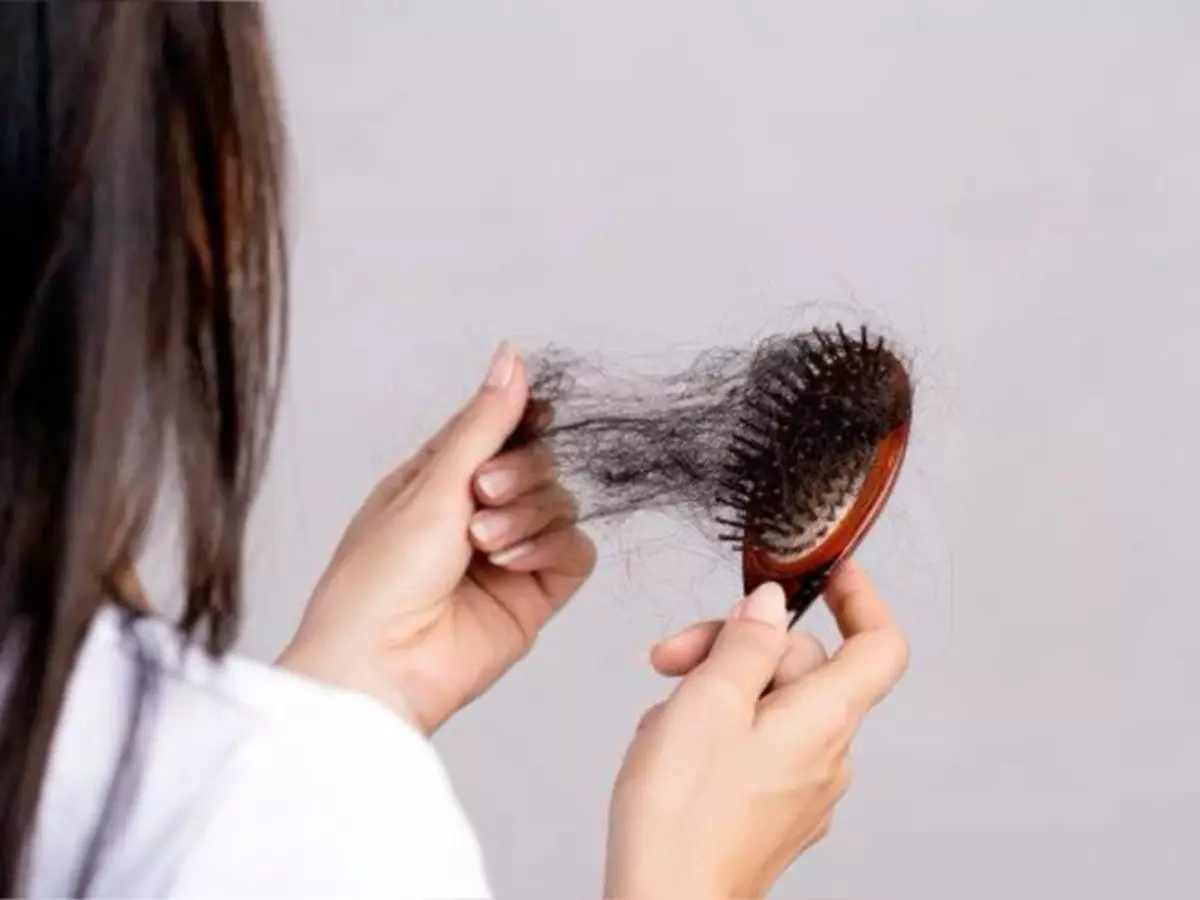Excessive hair fall during rains causing distress? Here's what you can do about it
Monsoon is accompanied by an increase in moisture in the atmosphere. This excessive moisture tends to make the hair more frizzy and brittle causing breakage. While seasonal changes always have an impact on our hair health which are usually beyond our control, there are still some ways you can prevent your hair from further damage. Here are 5 simple ways through which you can reduce hair fall at home.

On one hand, we are overjoyed with the arrival of monsoon and rainy season as it brings us some much-needed respite from the scorching heat, but on the other hand, it always seems to wreak havoc on our hair. If you are wondering do rains actually increase your hair fall, then let us assure you that the answer is yes! And no you are not the only one going through this! Keep reading to learn why hair fall increases during the rainy season and how you can try to protect your hair.
 Pinterest
Pinterest
Also Read: Slick Back Hair Is All The Rage And Kriti Sanon, Shanaya Kapoor Show Us Why
Why is there an increase in hair fall in the rainy season?
Monsoon is accompanied by an increase in moisture in the atmosphere. This excessive moisture tends to make the hair more frizzy and brittle causing breakage. It is said, that there is almost a 30% increase in hair fall in the rainy months as the elevated levels of humidity make your scalp vulnerable to all kinds of bacteria and infections leading to fragile hair roots. Although, some amount of hair fall is inevitable during the monsoon there are still ways you can protect your hair.
Also Read: Top 7 reasons to swap your regular comb with a wooden hair brush today
How to prevent hair fall in the rainy months?
 makeup.com/Pinterest
makeup.com/Pinterest
While seasonal changes always have an impact on our hair health which are usually beyond our control, there are still some ways you can prevent your hair from further damage. Here are 5 simple ways through which you can reduce hair fall at home.
1) Avoid getting your hair wet in the rainwater
Over the years with climate change and an increase in pollution, the quality of rainwater has deteriorated significantly. It is crucial to understand acidic or dirty rainwater damages not only your hair strands but your scalp as well and weakens the hair structure.
2) Pay attention to your scalp
 share.newsbreak.com/Pinterest
share.newsbreak.com/Pinterest
According to a study published in the Asian Journal of Research in Dermatological Science, it is necessary to keep your scalp healthy. Excessive moisture in the atmosphere and an increase in sweat because of high humidity increases the build-up of dirt and dandruff on your scalp so make sure that you are washing your scalp frequently to keep it clean.
Also Read: What's the first thing to do in shower: Shampoo or body wash? A complete guide
3) Avoid oiling your hair too much
Since the scalp tends to get oilier and dirtier much more frequently in the rainy season, it's best to refrain from excessive oiling. If you still would rather use oil for nourishing, then apply it an hour before taking a shower and wash your scalp right away. Additionally, select lightweight oils that won't weigh down your hair, such as almond or grapeseed oil.
4) Never tie wet hair
 allure.com/Pinterest
allure.com/Pinterest
It is essential to completely dry hair after every hair wash because styling or tying up damp hair or keeping it wet for an extended amount of time can promote the growth of fungi and cause hair loss.
5) Have a nutritious diet
Keeping your hair healthy is mostly dependent on eating a balanced diet no matter the weather conditions. Eat protein-rich foods, such as eggs, sprouts, almonds, and groundnuts. and also include vitamin and mineral-rich fruits and vegetables in your diet to nourish your hair from the inside out.
While we understand excessive hair loss that most of us experience can be extremely distressing, but with the correct preventive measures you can easily keep your cascading locks healthy and minimize hair fall. So no matter how tempting it is to step in the cooling rain, you must refrain from doing so if you want to keep your hair healthy.
Also Read: Getting bald? Experts claim your hair follicles could be stressed and upset
For more on fashion, relationships and health from around the world please visit Indiatimes Lifestyle.
